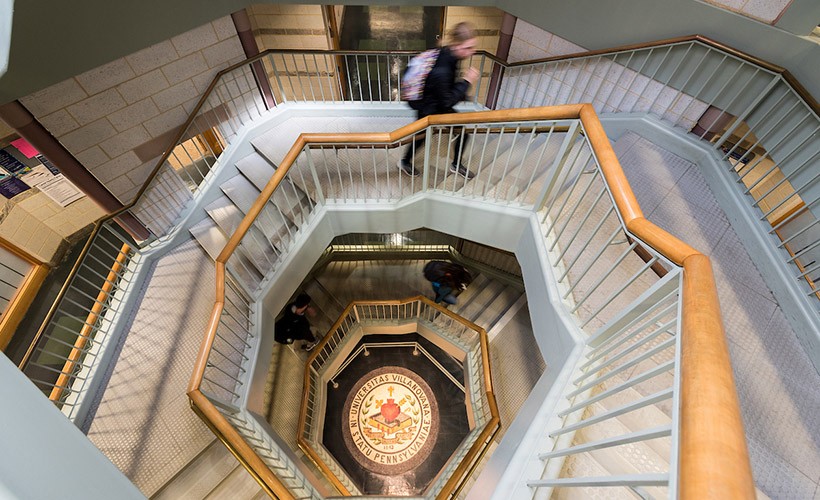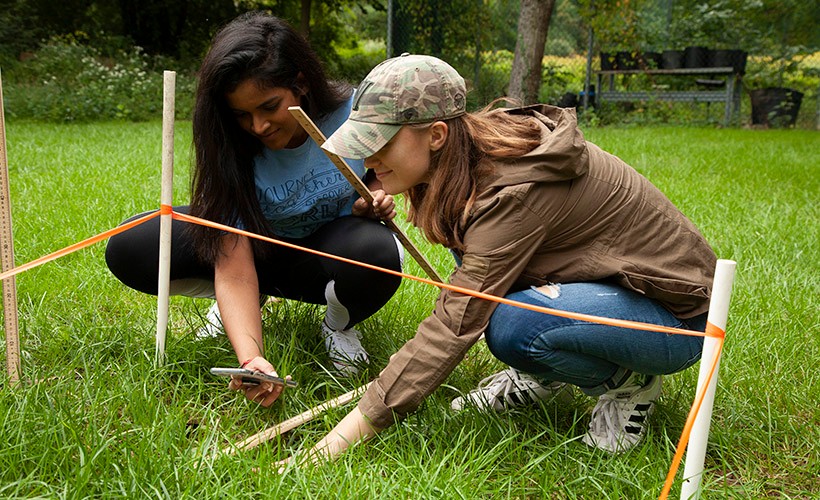VISION STATEMENT
“There is no better way to pursue the truth than by questioning and answering”
– Augustine, Soliloquies, II.7.14
Understanding What We Believe
The Department of Theology and Religious Studies is committed to the time-honored definition of its task as "understanding what we believe" (Augustine) or, as Anselm of Canterbury later reformulates, “faith seeking understanding.”
This task draws upon the rich legacy of St. Augustine’s passionate pursuit of truth, a purposeful endeavor that evokes the union of mind and heart, links faith with rational reflection and, in dialogue with culture, builds unity in the midst of diversity. Thus, the department accepts “faith seeking understanding” as a process that takes place in specific cultural contexts that also must be analyzed.
Understanding Ourselves in Relationship to Others
Villanova University exists within a world of profound religious, theological, racial, economic, and cultural diversity, some of which can be seen on campus. Globalization and information technologies effectively collapse walls and barriers that once defined the boundaries and borders of our lives and of the disciplines within which we have learned to study. We, therefore, have an opportunity to open windows for understanding ourselves in relationship to others, the social order, and the social divisiveness and violent confrontations rooted in deep economic, political, ethnic, and theological/religious worldviews (cf. Gaudium et Spes 37). Christianity itself is changing in the midst of these forces that bring faith into question. It is crucial that students recognize that what they believe has implications in relation to the lives of others in our own society and across the globe (particularly poor and marginalized people), the planet, and diverse religious traditions and cultures.
Theological and religious literacy is not only the mark of a liberally educated person but also an indispensable resource helping us to understand ourselves in order to empathize with one another and contribute to shaping a more just, compassionate, inclusive, and peaceful global society. Students and teachers thus have a triple task: to be steeped in the rich tradition of Christianity and the faith-claims that it makes; to understand how the Christian construal of reality interacts with and has a continuing impact on the global society today and for the future; and to engage in a thoughtful and practical inculturation of religion/theology.
Rendering Faith(s)/Religion(s) Meaningful and Relevant
Theology and Religious Studies courses acquire their unique significance in the Liberal Arts and Sciences Core Curriculum because of their inner need to make the dialogue between faith(s)/religion(s) and culture(s) authentic. Understanding the substantial relationship of faith(s)/religion(s) and culture(s), instructors accept the challenge to render faith(s)/religion(s) intelligible, meaningful, and relevant in diverse contemporary cultural contexts – both local and global.
With their own canons of inquiry and verification and with increasing degrees of methodological complexity, theological and religious studies disciplines probe rigorously broader questions of relevance to Christian belief and practice, the prophetic mission of the body of Christ, the union of mind and heart, life as a whole, and the discovery of God who is at the center of it all. This emphasis is characteristic of the University itself: “Inspired by the life and teaching of Jesus Christ, the University is grounded in the wisdom of the Catholic intellectual tradition and advances a deeper understanding of the relationship between faith and reason.” (Villanova Mission Statement)
Statement rev. 05/05/2017



